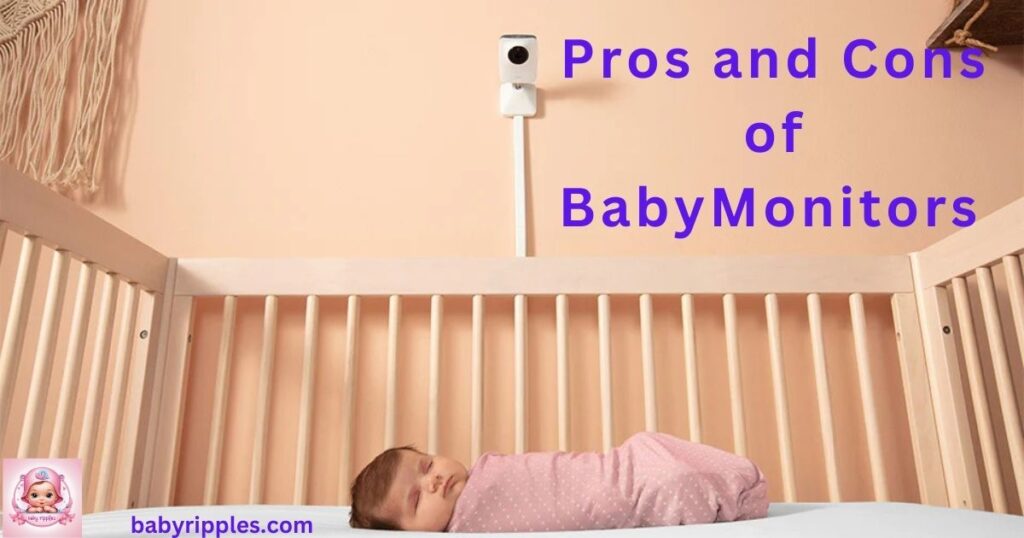Baby monitors have become necessary for modern parenting, providing many families with ease and peace of mind. These gadgets have several possible disadvantages even though they can guarantee safety and greatly enhance your baby’s sleep schedule. Understanding the pros and cons of baby monitors for your baby’s sleep can help you decide if they’re the safe for your baby.
Let’s explore their impact, provide actionable tips, and equip you with the knowledge needed to make an informed purchase.
Related post: How to Tell If Baby Monitor is Hacked
What Are Baby Monitors?
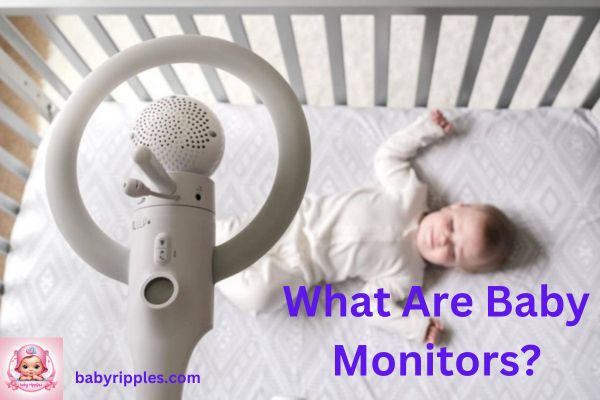
Baby monitors are electronic devices designed to help parents keep an eye (and ear) on their baby from a distance. They typically consist of two parts:
- A transmitter (usually placed in the baby’s room)
- A receiver (used by the parent)
Modern monitors often come with features like video feeds, night vision, temperature monitoring, and even two-way communication.
The Pros of Baby Monitors for Your Baby’s Sleep

1. Enhanced Safety and Peace of Mind
The ability to keep an eye on your infant as they sleep is one of the main benefits of baby monitors. Knowing that you’ll be informed if something seems strange, such as weeping or erratic breathing, gives you peace of mind.
- Devices with motion sensors or heart rate monitors offer additional reassurance.
- Some advanced models notify you of sudden changes in your baby’s sleeping environment, like temperature drops.
2. Convenience for Busy Parents
Baby monitors allow parents to multitask while keeping tabs on their little one. Whether you’re working, cooking, or relaxing, a quick glance at the monitor ensures everything is fine.
- This flexibility is invaluable for parents managing multiple children or household chores.
3. Promotes Independent Sleep Habits
With a monitor, parents can resist the urge to immediately intervene when a baby stirs. Over time, this helps babies learn to self-soothe and establish better sleep habits.
4. Helps with Sleep Tracking
Some baby monitors now include sleep tracking features. These provide data on your baby’s sleeping patterns, such as:
- How long they sleep
- How often they wake up
- What environmental factors might disrupt their sleep
5. Enables Long-Distance Monitoring
Many modern monitors work through Wi-Fi, allowing parents to check in even when they’re away from home. This is especially helpful for working parents or those who travel frequently.
The Cons of Baby Monitors for Your Baby’s Sleep

1. Potential for Over-Reliance
Relying too heavily on a baby monitor can lead to increased anxiety. Constantly checking the monitor might prevent you from getting quality sleep yourself.
- Trust your instincts and use the monitor as a supportive tool, not a crutch.
2. Technology Limitations
Some baby monitors can be prone to technical glitches, such as:
- Poor battery life
- Limited range
- Connectivity issues (in Wi-Fi models)
3. Privacy Concerns
Wi-Fi-enabled baby monitors can be vulnerable to hacking if not secured properly. Always:
- Choose a monitor with strong encryption.
- Change default passwords.
- Keep your firmware up to date.
4. Increased Costs
High-quality monitors with advanced features can be expensive. Parents on a budget may find these costs difficult to justify.
How to Choose the Right Baby Monitor
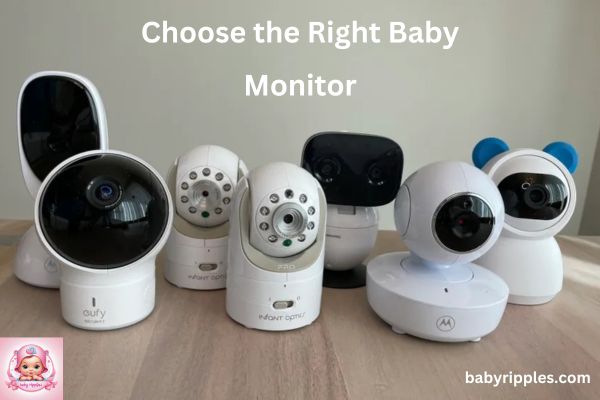
If you’ve weighed the pros and cons of baby monitors for your baby’s sleep and decided to invest in one, follow these steps to pick the best device for your needs:
Step 1: Determine Your Must-Have Features
Consider what features are most important for your family:
- Video vs. audio-only monitoring
- Temperature or motion detection
- Wi-Fi connectivity for remote access
Step 2: Assess Your Home Layout
Think about your home’s size and the monitor’s range. Ensure it covers all areas where you’ll need to monitor your baby.
Step 3: Research Reviews and Recommendations
Look for reviews from other parents and trusted sources. Pay attention to feedback about:
- Signal strength
- Battery life
- Customer support
Step 4: Consider Security Features
For Wi-Fi models, prioritize devices with strong encryption to protect your family’s privacy.
Step 5: Set a Budget
Determine how much you’re willing to spend and stick to it. Many mid-range models offer excellent features without breaking the bank.
Tips for Using Baby Monitors Effectively
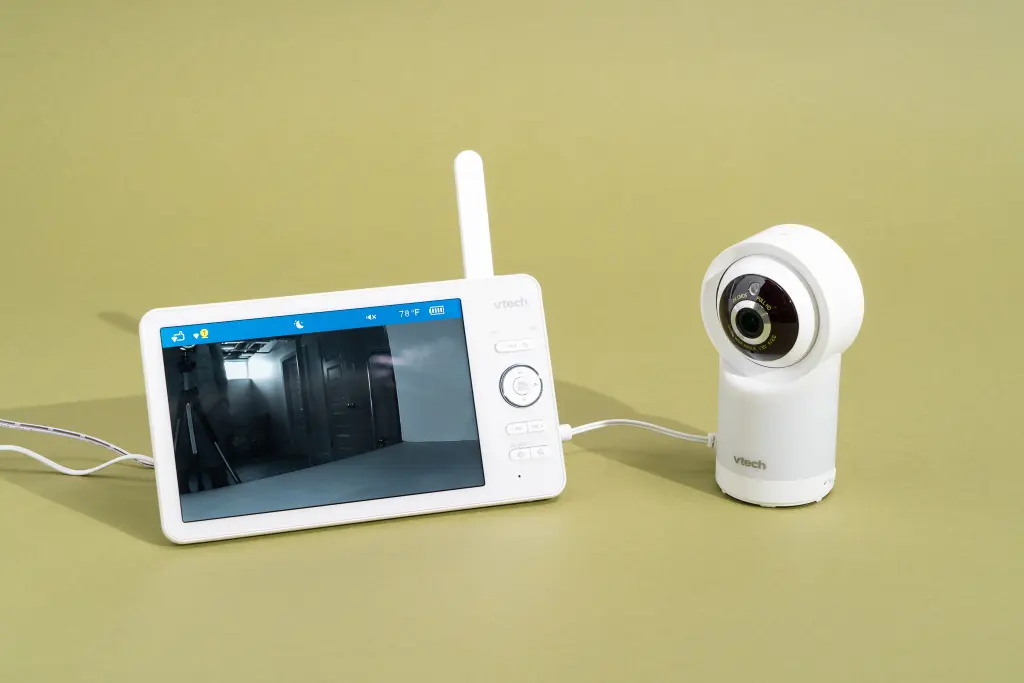
- Place the Monitor at a Safe Distance
Position the monitor at least 3 feet away from the crib to avoid exposure to electromagnetic radiation. - Don’t Let It Replace Personal Interaction
While monitors are convenient, they shouldn’t replace physically checking on your baby when necessary. - Adjust Notifications
Set alerts to suit your preferences—too many alerts can disrupt your own sleep. - Use as a Training Tool
When your baby stirs, wait a moment before intervening. This encourages self-soothing.
Why Baby Monitors Are Worth the Investment
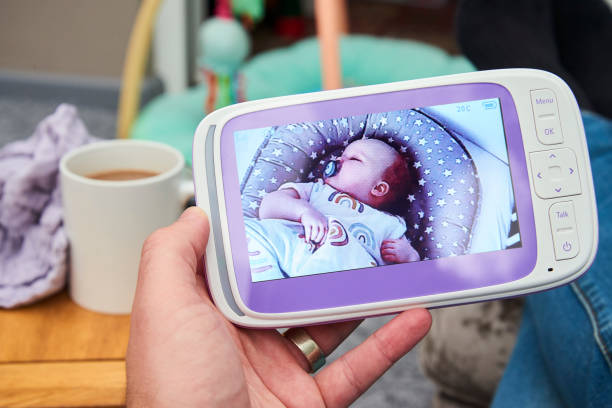
The impact of baby monitors on your child’s sleep can be extremely good, notwithstanding any possible drawbacks. These gadgets have revolutionized modern parenting by giving convenience, encouraging independence, and bringing peace of mind.
Parents thinking about making this purchase should concentrate on the elements that are most important to your family’s requirements. Every budget can find a solution, whether it’s a basic audio monitor or cutting-edge technology.
Takeaway
Understanding the pros and cons of baby monitors for your baby’s sleep can help you make an informed decision. These gadgets provide convenience, protection, and peace of mind, but they may also have negative effects like over-reliance and privacy issues. Select a monitor that meets your needs, put security first, and utilize it as a helpful tool to improve your parenting experience and your baby’s sleep.
FAQs About Pros and Cons of Baby Monitors
1. Are baby monitors necessary for every parent?
Not necessarily. They’re most beneficial for parents who need flexibility, have large homes, or want extra reassurance during their baby’s sleep.
2. Do baby monitors disrupt sleep?
When used properly, they enhance sleep by reducing parental worry. However, excessive reliance or over-monitoring can cause anxiety.
3. How can I secure a Wi-Fi baby monitor?
Choose models with encryption, change default passwords, and regularly update the firmware to reduce security risks.
4. What features should I look for in a baby monitor?
Key features include video capability, night vision, motion detection, temperature monitoring, and long battery life.
5. Are expensive baby monitors worth it?
Premium monitors often offer better range, quality, and additional features. However, affordable models can still meet basic needs effectively.

